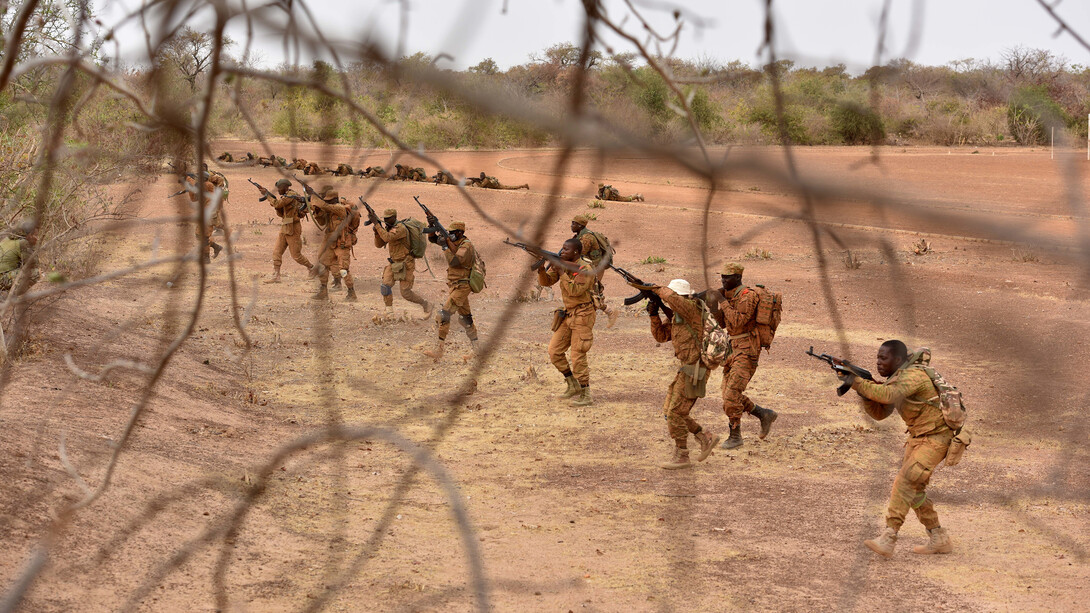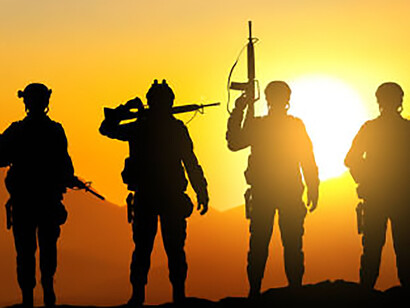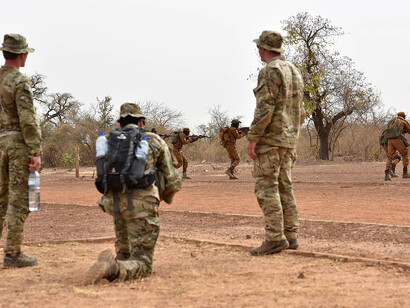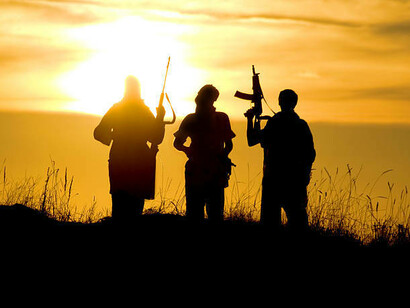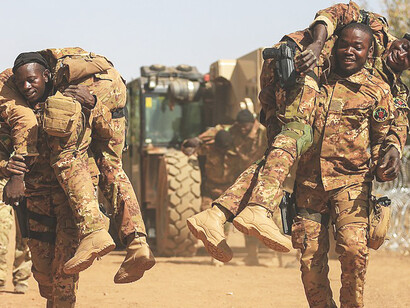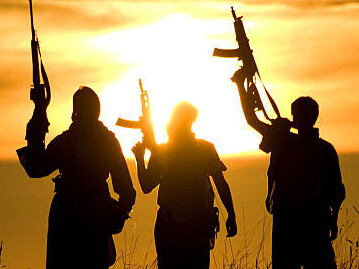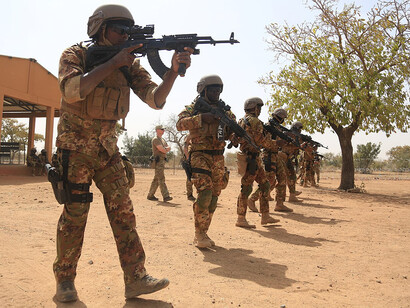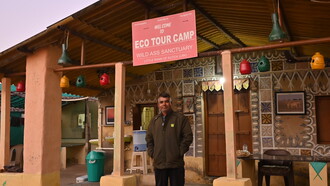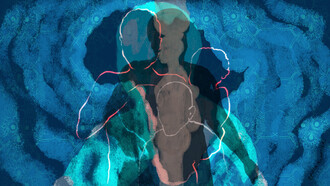Once seen as a strategic frontier in the global fight against terrorism, the Sahel is now marked by political upheaval, armed insurgency, and changing international alliances. Stretching 5,000 kilometers from the Atlantic Ocean in the west to the Red Sea in the east, the Sahel is home to over 150 million people across ten countries. 1 It is a region where climatic fragility meets political volatility.
Since 1960, the Sahel region alone has experienced around 150 successful or abortive coups, making it one of the most coup-prone areas in the world. Over the past three years, Mali, Burkina Faso, and Niger have each undergone military takeovers. Elected governments have been removed under the justification of restoring national security and sovereignty. 2 Due to the vast scale of the Sahel, this article focuses on these three neighboring countries.
These moves have raised serious concerns about the future of democratic governance in the region. At the same time, paramilitary actors have become central players. Russian-linked mercenaries, local militias, and jihadist groups all operate with increasing influence, challenging the authority of weakened state institutions.3
International involvement is shifting. France has significantly reduced its presence, while organizations like ECOWAS (Economic Community of West African States) are struggling to assert influence. In their place, new external actors such as Russia and Türkiye are expanding their footprint in the region. This article examines how the convergence of political power struggles, the rise of paramilitary forces, and evolving geopolitical interests are reshaping the Sahel. The region’s transformation carries implications that go well beyond its borders.
The rise of military rule and erosion of democracy
The wave of military coups in Mali (August 2020 and May 2021), Burkina Faso (January 2022), and Niger (July 2023) marks a stark departure from the democratic transitions once championed by international donors and regional blocs. In each case, military leaders have framed their interventions as responses to widespread insecurity and governmental failure. But the promises of swift stabilization have largely gone unfulfilled.4 Instead, these regimes have concentrated power, silenced dissent, and delayed transitions back to civilian rule.
These coups d’état also reflect popular frustration with corruption, unemployment, and perceived foreign interference. In many towns and cities, military takeovers were met with celebrations rather than protests, a sign of deep disillusionment with democracy. Nonetheless, this short-term support hides long-term risks: military regimes have proven no more effective at suppressing violence or restoring governance. And in their search for new allies, they are reshaping the region’s foreign policy map in unpredictable ways.
The Solhan massacre
In June 2021, Solhan, a village in northeastern Burkina Faso, became the site of a horrific attack, resulting in the country’s deadliest terrorist attack to date. Over 130 civilians, including men, women, and children, were killed by suspected Islamist militants. While no group claimed responsibility, the assault is attributed to factions linked to Al-Qaeda or the Islamic State.5
The massacre highlighted the growing insecurity in the Sahel. With state forces being unable to secure rural areas, armed groups have filled the power vacuum, terrorizing vulnerable communities. This attack was a brutal reminder of the state’s inability to protect its citizens. The perpetrators were children as young as 12 years old and men who reached the village on motorbikes. Their use of child soldiers and swift, mobile tactics underscores how deeply these groups are embedded in local dynamics and how difficult they are to confront. In the absence of effective state protection, fear and violence have become part of daily life for many.
The aftermath also had serious consequences for humanitarian efforts. Aid organizations were forced to scale back operations due to extreme security risks. Areas that were already hard to reach became even more dangerous for relief workers. Solhan became a symbol of the humanitarian crisis gripping the region. As militants grow bolder, it is clear that the human toll will continue to rise, and humanitarian aid will remain severely constrained.
Paramilitary presence and the role of non-state actors
As formal institutions fail, paramilitary forces have stepped in to fill the vacuum, often with destabilizing consequences. At the forefront of these forces is the Wagner Group, a Russian-linked paramilitary organization now embedded in several Sahelian security operations, particularly in Mali. Their presence offers a veneer of stability but has been accompanied by reports of human rights abuses, opaque contracts, and extractive economic arrangements. 6
Beyond military engagement, Russia’s involvement in the Sahel reflects broader geopolitical ambitions. Two main objectives drive its African strategy: exporting manufactured weapons and securing access to natural resources. In countries like Mali, this has translated into a quid pro quo arrangement: security assistance in exchange for privileged access to gold, uranium, and other raw materials. These opaque deals often bypass public scrutiny, reinforcing extractive relationships that benefit elites and foreign actors while doing little to address the root causes of insecurity on the ground.
Alongside foreign mercenaries, local militias and jihadist groups continue to flourish. Approximately fifty percent of terrorism-related deaths worldwide occurred in the Sahel region.7 The Islamic State in the Greater Sahara (ISGS) and Jama'at Nasr al-Islam wal Muslimin (JNIM) have expanded their operations, exploiting vulnerable borders and the absence of strong state control. These actors increasingly act as de facto authorities in some regions, imposing taxes, adjudicating disputes, providing rudimentary services, and thus further eroding the legitimacy of national governments.
Rather than merely a contest between states and insurgents, the Sahel’s security landscape has morphed into a fluid battleground of actors with overlapping and sometimes contradictory interests. Civilians are caught in the crossfire, often forced to choose between compliance and resistance to whichever force dominates their territory.
Changing geopolitical alignments
The Sahel is experiencing a major shift in its strategic alliances. France, once the dominant external power in the region, has significantly scaled back its presence. For years, it led Operation Barkhane, a large-scale counterterrorism campaign launched in 2014 that deployed over 5,000 troops across Mali, Burkina Faso, Niger, and other Sahelian countries to combat jihadist insurgencies. Nevertheless, despite its scope and resources, the mission was increasingly seen as ineffective and heavy-handed. Accusations of neocolonialism and a failure to contain violence eroded public support, prompting France to wind down the operation and withdraw its forces.8
In its place, new players have stepped forward. Russia has positioned itself as an alternative security partner, offering arms and advisers without conditions on governance or human rights. Türkiye has expanded its diplomatic and economic presence, leveraging humanitarian aid and religious diplomacy to build influence. Meanwhile, China’s interest in the region remains largely economic, with infrastructure investments and resource extraction deals continuing under their main economic and geopolitical tool, the Belt and Road Initiative.
The retreat of Western powers has allowed these actors to engage in a new “Great Game” for influence, where ideology matters less than access and leverage. In this geopolitical reshuffling, Sahelian states are no longer passive recipients of foreign aid and military assistance, but they are active negotiators, sometimes playing powers against one another to maximize their gains.
Implications for regional stability and global security
The turmoil in the Sahel is not an isolated issue. They threaten to spill over into coastal West Africa, further destabilize fragile states, and complicate international counterterrorism efforts. As governance breaks down, migration pressures are likely to increase, exacerbating tensions along Mediterranean routes. Drug and arms trafficking corridors, already thriving, may become even more entrenched.9
There are also reputational consequences for multilateral institutions. The inability of the African Union and ECOWAS to reverse recent coups, enforce sanctions effectively, or offer credible alternatives has raised questions about their long-term relevance. Similarly, Western efforts to promote democratization and development now face growing skepticism.10
In conclusion, for the international community, the Sahel is both a cautionary tale and a call to action. Abandoning the region risks creating a vast, ungoverned space vulnerable to exploitation by extremist and criminal networks. Yet engagement must go beyond military solutions. Worsening security in Mali, Burkina Faso, and Niger has left large parts of the territory out of reach for humanitarian aid efforts.11 The future of the Sahel depends on meaningful investment in governance, infrastructure, and inclusive development undertaken with humility, historical awareness, and a willingness to listen to local voices.
References
1 Adama Dieng, “The Sahel: Challenges and Opportunities,” International Review of the Red Cross 103, no. 918 (2021): 765.
2 Gorden Moyo and Sabelo J. Ndlovu-Gatsheni, Global Storms and Africa in World Politics (Heidelberg: Springer, 2025), 274.
3 Sebastian Elischer, “Populist Civil Society, The Wagner Group, and Post-Coup Politics in Mali,” West African Papers, no. 36 (2022): 26.
4 Gorden Moyo and Sabelo J. Ndlovu-Gatsheni, Global Storms and Africa in World Politics (Heidelberg: Springer, 2025), 274.
5 Joachim Chukwuma Okafor, Olihe Adaeze Ononogbu, Anthony Chimankpam Ojimba, and Casimir Chukwunoyelum Ani, “Trans-border Mobility and Security in the Sahel: Exploring the Dynamics of Forced Migration and Population Displacements in Burkina Faso and Mali,” Society 60 (2023): 349.
6 Kemal Mohamedou, “The Wagner Group, Russia’s Foreign Policy, and Sub-Saharan Africa,” Geneva Centre for Security Policy, March 2024, 22.
7 Olayinka Sodik Kazeem, “Dynamics of Conflict in the Sahel: Mali, Burkina Faso, and Niger,” International Journal of Criminology and Security Studies 3, no. 2 (2024): 59.
8 Aleksander Olech, “French Operation Barkhane in Africa—Success or Failure?” Stosunki Międzynarodowe—International Relations 3, no. 17 (2023): 6.
9 Malte Michael Lierl, “Growing State Fragility in the Sahel: Rethinking International Involvement,” German Institute for Global and Area Studies, December 2020.
10 Cynthia Nkechi Osuchukwu, Wilson Chibuzor Iteke, and Ifeanyi Godspower Emesiani, “The Alliance of Sahel States and the Future of West African Regional Integration,” Direct Research Journal Socialial Science and Educational Studies 13, no. 1 (2025): 37.
11 Olayinka Sodik Kazeem, “Dynamics of Conflict in the Sahel: Mali, BurkiFaso,aso and Niger,” International Journal of Criminology and Security Studies 3, no. 2 (2024): 64.
